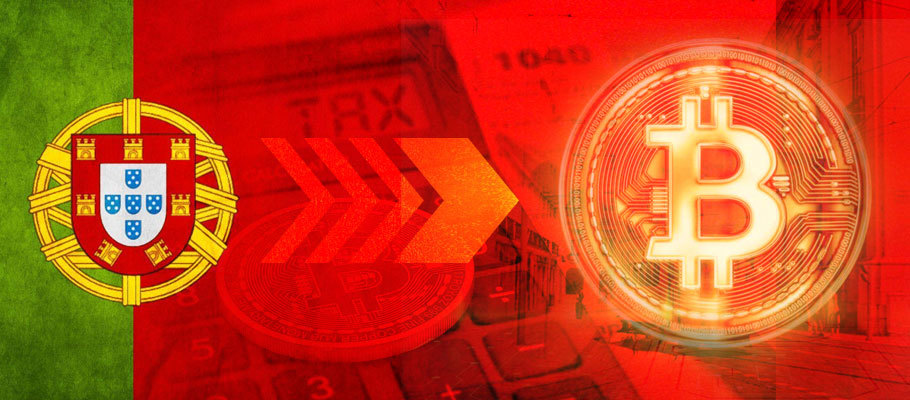
Published: May 18th, 2022
Portugal’s reputation as a tax haven for crypto investors took a hit this week as the country's finance ministry announced that crypto assets will soon be subject to capital gains taxes.
The news marks a sharp change in Portugal’s stance toward crypto. The country has treated cryptocurrency trades like cash transactions rather than investments, excluding crypto from capital gains taxes by definition.
The coming change will make crypto trades subject to a biting 28 per cent levy.
Because the previous tax rate was effectively zero, Portugal had established a reputation as one of the most attractive jurisdictions on the planet for crypto investors. Lisbon became a global crypto hub as a result.
Perhaps because of the level of tech and private investment crypto has attracted to the country, Portuguese officials were keen to avoid framing the shift as a departure from business-friendly policies. Rather, they said, lawmakers were simply regulating crypto as they’d always intended. The government wanted to observe how other countries were adapting taxes and regulations to ensure Portugal's policy decisions were in sync with others.
Finance Minister Jorge Medina told Reuters that crypto is an area where there is now ‘a lot more knowledge. Portugal can learn from international experiences.’
Several countries have started treating crypto-trading profits as capital gains. Australia’s tax authority published a warning to crypto holders this week, saying that anyone who hasn’t disclosed taxable earnings from the sale of cryptocurrencies and NFTs would be required by law to do so.
Portugal may not be finished with crypto-related taxes. Medina also told parliament this week that cryptocurrencies presented regulators with ‘a more complex set of financial mechanisms than current capital gains taxes are designed to cover.’ He implied that crypto in Portugal might need to be subject to stamp duty, VAT, or even property taxes in the case of NFTs.
‘We are reconsidering all taxes and regulations that touch on crypto activities,’ said Medina. ‘We aren't simply trying to grab headlines. Portugal needs a legislative initiative that addresses cryptocurrency in all its dimensions.’
Analysts are uncertain about what the new tax measures mean for Portugal’s long-term approach to crypto.
Mixed signals abound. As recently as last month, financial regulators in Lisbon granted a license to Bison Bank, one of the country’s largest high street lenders, to launch Bison Digital Assets. The new entity will offer crypto custody and exchange services.
A press release announcing the launch said Bison customers will have access to a wider range of products and services that are ‘in line with emerging trends in this new segment.’
Bison Digital Assets is also targeting institutional investors, family offices, and other high-net-worth individuals. The company hasn't said yet which cryptocurrencies it will support, though BTC and ETH along with stablecoins like Tether (USDT) and USD Coin (USDC) seem a safe bet.
Under the watchful eye of the Banco de Portugal central bank, Bison Digital Assets will have to abide by strict anti-money laundering and counter-terrorism rules.
While the arrival of Portugal’s first crypto bank is notable, it isn’t the first crypto-friendly move mad eby lawmakers. Before this week's capital gains tax announcement, Portugal was one of the tax-friendliest regimes for crypto investors in the world.
Proceeds from the sale of cryptocurrencies had been effectively exempt from taxation since 2018. Capital gains tax on other traditional investment activities sits at a whopping 28 per cent.
Portugal has also been the scene of some of the biggest crypto-industry events, including Solana’s annual Breakpoint Conference last year.
Earlier this month, Buenos Aires-based Banco Galicia, Argentina's largest private bank, began offering clients access to trading services in four different cryptocurrencies, BTC, ETH, XRP and USD Coin.
In a post on the bank’s corporate blog, the bank said the launch marked ‘a new and innovative service for customers, offering the purchase, sale and custody of cryptocurrencies in a simple, secure and one-stop place.’
‘You can now trade crypto with Banco Galicia,’ the company said on its Twitter feed. 'Customers can now take advantage of new crypto investment services.’
As the biggest cryptocurrency by market cap, Bitcoin was an obvious choice for the bank, along with Ethereum which continues its firm grip onto second place. XRP is the fifth largest crypto by market cap and frequently used by banks to move money quickly, while USD Coin promises less volatility than other cryptocurrencies as it’s a stablecoin backed by fiat, US Dollars specifically
In its blog, Banco Galicia said more cryptocurrency services may be coming in the future.
Cryptocurrencies are hugely popular in Argentina due to its high rate of inflation, one of the highest in the world. It currently sits at 50 per cent year-on-year, according to data from the central bank.
In September of 2021, the government of El Salvador voted through a bill to establish Bitcoin as one fo the country’s recognised forms of legal tender.
President Nayib Bukele announced via Twitter that he had tabled a "Bitcoin Law" to the legislature for debate and a final vote. It was discussed and approved in a matter of hours, giving Bitcoin the legal tender status and compelling the Central American country’s merchants to accept it for payment.
Congressman Chris Guevara told Reuters that ‘of all the decisions we took in the legislative session, the Bitcoin Law may turn out to be the most important.’ The announcement came as part of the government’s deliberations over the 2021 national budget.
The move made El Salvador the first country on Earth to give Bitcoin legal tender status, putting it on par with the greenback as a currency in El Salvador.